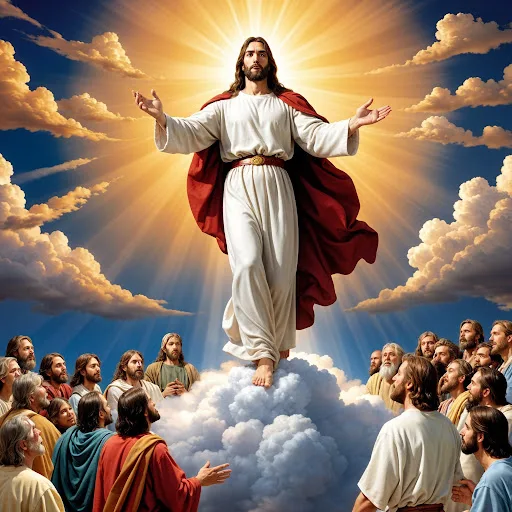The question of who will go to heaven when Jesus returns is a topic of deep theological significance that has stirred debates among Christians for centuries. One of the most frequently cited sources regarding this question is found in the Book of Revelation. Specifically, Revelation 7:4 mentions a number that has become famous in Christian eschatology: 144,000. This number is understood by some to indicate a specific group of individuals who will be granted entrance to heaven.
The context of the 144,000 is rooted in a vision experienced by John, the author of Revelation, where he sees an angel sealing the servants of God on their foreheads. The passage specifies that 12,000 people from each of the 12 tribes of Israel are sealed, totaling 144,000. This has led some interpreters, particularly in certain evangelical circles, to conclude that these individuals are the only ones who will be saved and ascend to heaven.
However, this interpretation is not universally accepted among all Christian denominations. Many theologians argue that the 144,000 represent a symbolic expression rather than a literal number. They point out that the book of Revelation is filled with symbols and metaphors intended to convey deeper spiritual truths rather than rigid, numerical limitations. For instance, the choice of the number 144,000, which is 12 times 12,000, can be seen as representative of God's complete people, with 12 symbolizing divine governance and completeness in the Bible.
Additionally, in Revelation 7, immediately following the mention of the 144,000, a great multitude is described as standing before the throne of God. This multitude is said to be from every nation, tribe, people, and language, wearing white robes and holding palm branches. The implications of this passage are significant. It suggests that the promise of salvation extends beyond the 144,000, contradicting a purely limited interpretation. Instead, it emphasizes inclusivity in God's plan for salvation.
Furthermore, teachings from the Gospels support the belief that heaven is open to all who acknowledge Jesus Christ as Lord and Savior. Verses such as John 3:16, which states, "For God so loved the world that he gave his one and only Son, that whoever believes in him shall not perish but have eternal life," underline the universal offer of salvation.
The early church also emphasized the concept of grace over works, reinforcing the notion that admission to heaven hinges upon faith in Christ rather than a predetermined count of believers. Through the teachings of Jesus and the letters of the apostles, believers are assured that anyone who sincerely seeks God will find Him, regardless of their background or standing.
In conclusion, while Revelation’s mention of 144,000 is a fascinating aspect of biblical prophecy, many scholars believe it should not be interpreted as a strict cap on who will enter heaven. Instead, it symbolizes the fullness of God's people and showcases the breadth of salvation available to all who call upon the name of Jesus. As Christians reflect on these scriptures, the focus remains on a personal relationship with Christ, the hope of eternal life, and the assurance that God's love encompasses all humanity. Through faith, everyone is invited to partake in the promise of heaven.
If you find this article useful, please comment, subscribe, like, and share with friends. If you're interested in joining our brotherhood, note that while form registration is free only, our professional spiritual materials for initiation require payment.
We offer an inspiring atmosphere with resources for the spirit, body, soul, and mind.
You can connect with us through the following channels:
Call USA: +13157504880
Call Nigeria: +2348067204187
Telegram Message:
https://t.me/+2348067204187
Google chat: blackhearttemple@gmail.com
Email: blackhearttemple@gmail.com
Website: https://blackheartbrotherhood.blogspot.com/
Join Our Telegram Group: https://t.me/blackheartbrotherhood
Join Our Telegram Channel: https://t.me/occultbrotherhood4money
We look forward to hearing from you!


Comments